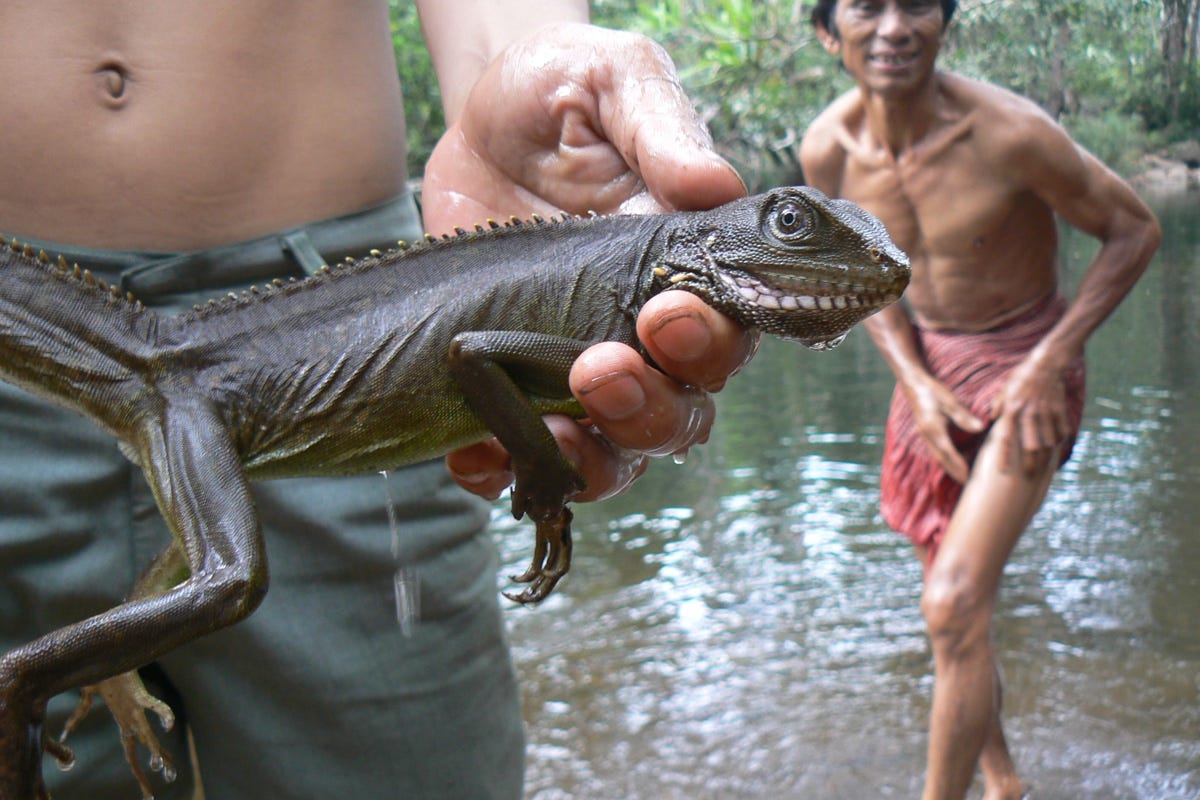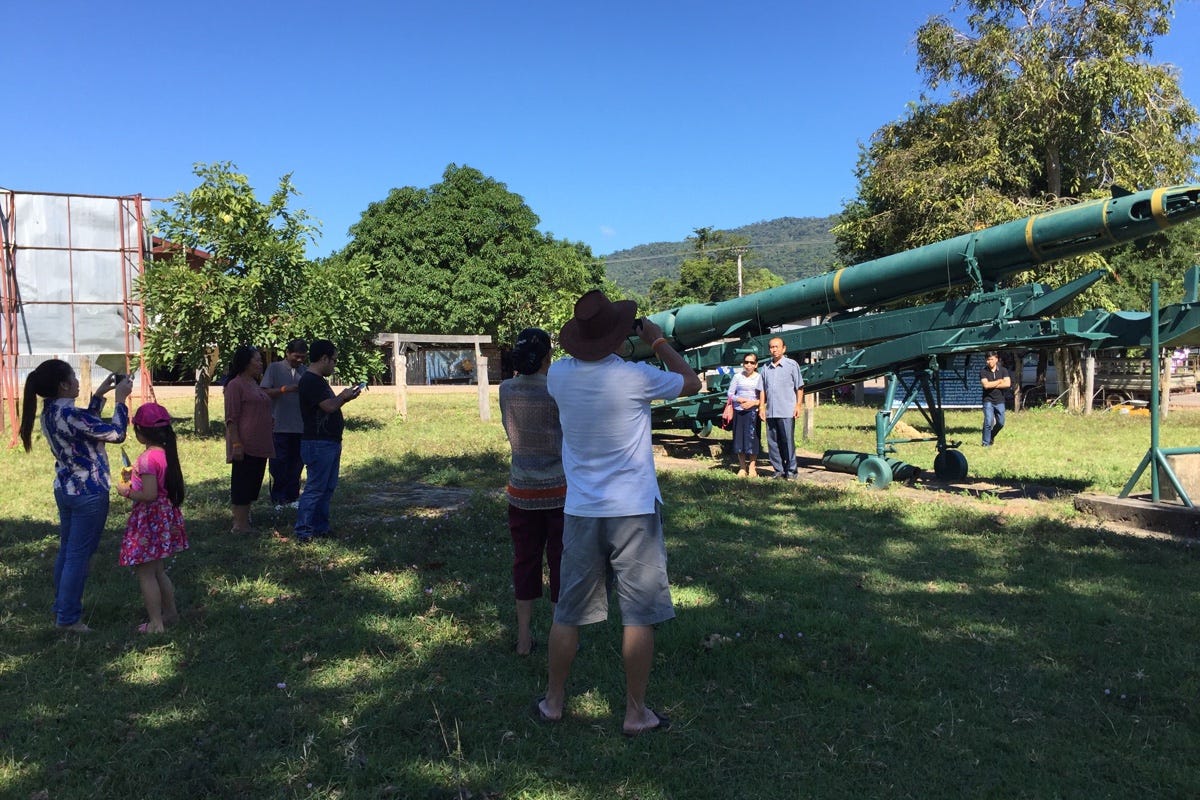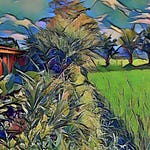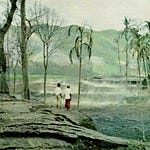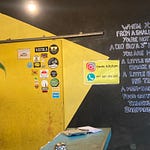Back when travel was still a thing, I had a sideline in travel consulting. People would pay me to help them plan out their holiday. They’d come to me with a date and a wish list and I’d help them fashion it into a trip that would hopefully be better than it would otherwise have been.
They’d send me what information and thoughts they had, then we’d have some to-and-fro by email. Perhaps a Skype call or three. It varied—no two trips are the same and all that.
It was a fun—and at times challenging—sideline. Some would already have a solid trip planned and only wanted someone who knew the territory to confirm it. Others, well, it was akin to juggling spaghetti—with the sauce already added.
Guidance, please. Pai Guesthouse signboard. Photo: Mark Ord.
A typical wish list varied. It could be anything from a half dozen bullet points to something verging on a PhD. While I know these have their fans, Excel spreadsheets always set off my warning klaxon, but horses and courses etcetera. For most, it was their first trip to the region. This isn’t to say they weren’t experienced travellers, no doubt, some were, but for most, Asia was a new frontier.
Once I’d fashioned the itinerary into something coherent, we’d get down to where the dragons lay. Most of the time people were fine with me reorganising the order and flow of a trip. After all these decisions were fact and logic-based. It is wet season there in June. Three days in Cambodia is insufficient. That bus ride will take two days, I would recommend considering a flight. And so on.
The dragons lay with the Joneses.
If you’re not familiar with the phrase “Keeping up with the Joneses”, there is a good Wikipedia explainer here. The pertinent section reads:
“The philosophy of ‘keeping up with the Joneses’ has widespread effects on some societies. According to this philosophy, conspicuous consumption occurs when people care about their standard of living and its appearance in relation to their peers.”
How this would play out in my travel consulting world is as follows. A trusted source would have told the client they should go, see, do, eat, whatever. This source may have been a friend, family member, or, on one occasion, a radio host they’d never met. Now plenty of these suggestions were solid, sometimes though, they weren’t. This was when the dragons would raise their heads.
What would Aunt Nancy think? Water Dragon, Rattanakiri, Cambodia. Photo: Greg McCann.
I wasn’t shy about flagging what I considered to be bad advice. The thing is, the traveller knew Aunt Nancy (or whoever) and Aunt Nancy knew them. Me? I was a dude they’d never met. What did I know about their tastes and desires? Maybe they’d like what Aunt Nancy was telling them to do. What would I know?
People say “word of mouth” is the form of recommendation that holds more weight than anything else. Boy, did I learn that one fast.
Let me use an example—I’ve changed identifiable details, but the lesson holds.
Aunt Nancy had told my client they had to eat at a certain restaurant in a certain city. It was the best meal they had their entire trip. The traveller’s itinerary had lots of suggested restaurants listed, but this one jumped out at me. It was a tourist trap, and, while the food was ok, there were far better places to eat in the city.
Their original itinerary was vast in scope, taking in many countries over a period of some months. In my first rewrite, I scratched out the restaurant and added “tourist trap switch for X”. It was one of dozens upon dozens of changes.
“What even is a tourist trap?” they wrote. Sam Missile, Attapeu, Laos. Photo: Cindy Fan.
When they replied, they said thank you. In the next sentence though, they wrote “I want to eat at X. Aunt Nancy said it was the best place in the country.”
Of all the changes I’d made, most of which they were totally fine with, this was their first thought.
The consultancy played out over a few months and we kept coming back to this restaurant. While it wasn’t a hill I was willing to die on, it was just a bad tip and it nagged at me. I’ll come back to this in a moment.
How people decide to research their trips has changed over the years. You may be thinking “Oh nobody uses a Rough Guide or Lonely Planet anymore”, but in the West, it goes farther back. In the East, more so.
I’d like a scarecrow explainer, please. The cover of Coryate’s Crudities. Photo: CC BY-SA 4.0 via Wikimedia Commons.
Writes Emily Thomas in the The Meaning of Travel, on the beginnings of the Grand Tour in the 17th century:
“One was Thomas Coryate’s 1611 Crudities: Hastily gobled up in Five Moneth’s Travels. It describes Coryate’s journey, much of it on foot, across Europe. The book contains lots of practical information on the countries travelled through, including their history, food, and exchange rates. Coryate’s aim was to encourage travel across Europe. Although he is little known today, Coryate was once nicknamed Furcifer (fork-bearer), for introducing the fork to England.”
The last sentence is irrelevant to this story, I just like the random oddities Thomas drops in. Her book is excellent—I reviewed it here.
This decade’s primary influence factor might be Instagram or TikTok. In the eighties and nineties, it was undeniably printed guidebooks. Before that, periodicals, journals and letters. Underneath all these though, were personal recommendations—even if they were not always on the money. Back to Thomas, quoting Joseph Hall from his 1605 satirical dystopian novel, Another World and Yet the Same:
“What if some Patagonian Polyphemus [Cyclops] were to tear you to pieces and then straightaway devour the throbbing and still-living parts?”
What if indeed—imagine catching up with Hall for beers after one of his trips?
While I never had a client ask me about the risks of a cyclops attack, there were plenty of bad bits I did counter. Many of them were thanks to Aunt Nancy.
Clients often wanted to go somewhere not because they wanted to, but because they’d been told they needed to. My response was often “Sure you could go there, but this other place might be a better choice for reasons X, Y and Z”. I’d always couch my advice as an option rather than an imperative—it is their trip after all.
The itinerary was pretty much done. A bazillion emails had gone back and forth along with a few hour-long calls. We kept though coming back to this one restaurant. I’d supplied a few alternatives and explained why I thought they were better. I’d also explained why I was down on this particular establishment. It wasn’t so much that it was bad, as much as there were many other far better options. In the end, the client said they’d “Think about it”. The consult was wrapped up and I pretty much forgot about it.
The other day, like most days, I was procrastinating on Twitter. I saw a tweet by a regional tourism board pushing a particular spot saying it was renowned for its beauty. I get the business tourism boards are in, but this particular one annoyed me more than usual.
Please visit our UNESCO Historical Site. Photo: Travelfish.
You see, I’d been to the location a couple of years earlier. The site was buried in trash, really in a poor state. I took some photos of it and tweeted them to the tourism board. In my tweets, I wrote they were welcome to use my trash-filled photos for their promotional work. Not surprisingly, they ignored me.
Maybe the site has been cleaned up since, I don’t know. What I do know, is if a prospective traveller saw the tourism board picture, they may well add the destination to their planned trip. If they were later to ask me, I wouldn’t think twice about saying “skip it and go to X instead.”
Unlike the 17th century, today travellers have a myriad of sources available to them. It pays though to sift through the chaff. Treat anything—and I mean anything—from a tourism board with the utmost level of caution. From that extreme, you have a progression through PR, comped and promotional writing, right through to your own experiences.
How can I write “your own experiences” when I’m writing about you going somewhere new? You haven’t been there yet.
Buying bridges? Here you go. The Broken Bridge, Salavan, Laos. Photo: Stuart McDonald.
That’s right, you haven’t but you will—and only then will you have your own opinion. No trip is perfect—and anyone who promises you one, well, they’ll sell you a bridge too. They’ll always be something less than perfect on a trip. It is a part of the learning experience—even if the lesson is to learn never to go there again!
About six months after the consultation I received an email from the client. They were back. Overall their trip had gone great and they were very appreciative of my assistance, but ...
You know where this is going right?
... they had re-shuffled their plans in that one city and had gone to the restaurant I’d said was a poor choice. They loved it. Not only that, the next night they went to the restaurant I had suggested as an alternative and ...
You know where this is going right?
... my suggestion was good but not as good as the one suggested by Aunt Nancy.
As with the perfect trip, perfect travel advice doesn’t exist. Make your own trip, make your own mistakes—and learn from them. Oh and ignore tourism boards and do be selective with Aunt Nancy’s travel advisories.
Couchfish is 100 percent independent and reader-supported. If you’re not already a subscriber, and you’d like to show your support, become a paying subscriber today for just US$7 per month—you can find out more about Couchfish here—or simply share this story with a friend. Thank you!



